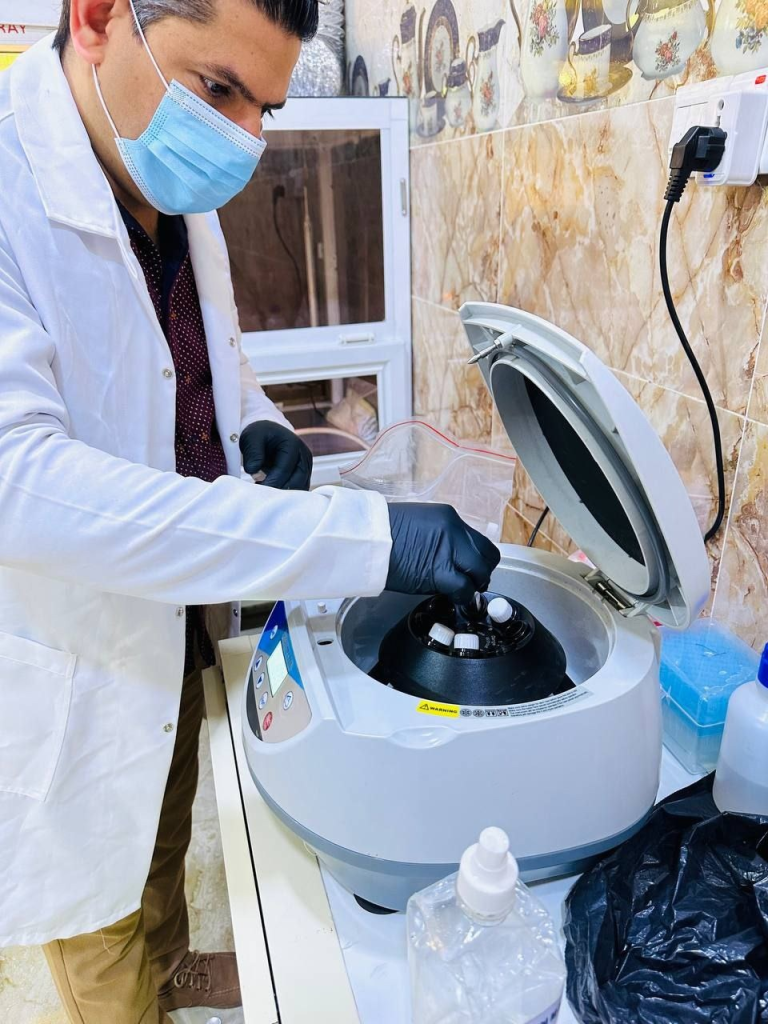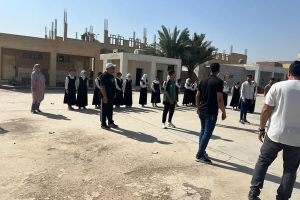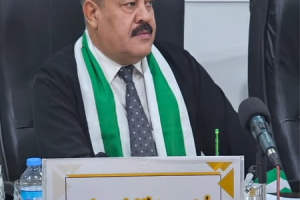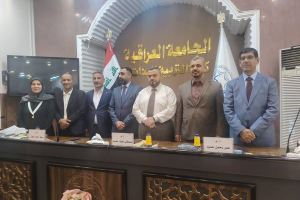
From Diyala’s basic laboratories to international journals…
Solid Iraqi applied research reveals the effect of E. coli toxins on immune cells and is published in an international journal within Scopus Q3 containers.
As part of the advanced scientific journey pursued by the Faculty of Basic Education at the University of Diyala, a joint research team from the faculty and the University of Basra achieved a remarkable scientific achievement by publishing applied research in the King Faisal University Journal for Basic and Applied Sciences, a peer-reviewed scientific journal published by King Faisal University in Saudi Arabia, which is included in Scopus – Q3.
The research, titled
“In Vitro Induction of Apoptosis in Human Lymphocytes By Stx1 From E. Coli O157:H7”
highlighted the effect of Shiga toxins Stx1 produced by the bacterial strain E. coli O157:H7 on stimulating the programmed death of immune lymphocytes, a precise research topic of great importance in the medical and applied fields, especially in the context of understanding the mechanisms of immune and inflammatory diseases.
The following individuals participated in preparing the research:
- Lecturer Dr. Kazim Adel Hadi – Faculty of Basic Education / University of Diyala
- Professor Dr. Shayma Jabbar Risan – Faculty of Pure Sciences Education / University of Basra
The study involved collecting 200 urine samples from patients suffering from urinary tract infections at Baquba General Hospital and some health centers in Basra Governorate. After initial diagnosis using biochemical methods and molecular techniques such as gene sequencing and PCR, the researchers were able to identify three bacterial isolates belonging to the pathogenic strain E. coli O157:H7, which is one of the main causes of chronic urinary tract infections, especially in women.
The research team was able to extract Stx1 Shiga toxins from the bacterial isolates and then study their effect on stimulating apoptosis in human lymphocytes, which represents a gateway to understanding the profound pathological impact of this strain and opens new horizons for dealing with it medically and pharmacologically.
In this context, the Dean of the Faculty of Basic Education, Assistant Professor Dr. Ayman Abdul Aoun, praised this applied scientific achievement, emphasizing that:
“The scientific achievements of our teaching staff embody the college’s keenness to support sound applied scientific research and reflect the level of research progress and academic openness to scientific institutions inside and outside Iraq.”
The Dean also noted the importance of joint research and integration between Iraqi universities in developing knowledge and serving the community, encouraging the continuation of this constructive scientific approach.
This research comes within the framework of the college’s commitment to supporting the United Nations’ sustainable development goals, in particular: Goal 3: Good health and well-being – by contributing to the understanding of diseases and supporting studies that contribute to their prevention. Goal 9: Industry, Innovation and Infrastructure – by promoting scientific research and innovation in vital fields. Goal 17: Partnerships for the Goals – by fostering scientific cooperation between Iraqi universities and exchanging experiences to serve the public good.



![]()



